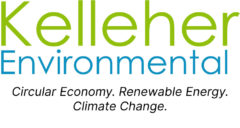Draft Guidance Information for Environmentally Sound Management of Electric Vehicle Batteries at End of Life, Environment and Climate Change Canada (ECCC) (2023): Compiled available information and carried out stakeholder interviews on ESM of EV lithium-ion batteries (LIBs) to produce a Resource Document.
Circularity and Recycling of Lithium-Ion Batteries for Electric Vehicles: Standardization and Safety Requirements, Canadian Standards Association (CSA) (2022): Carried out interviews with 30 stakeholders through the lithium-ion (LIB) battery supply chain to identify gaps in standards, guidelines, regulations and other instruments to promote circularity of LIBs from EVs. Identified opportunities and recommended next steps to increase and promote increased circularity.
US Market Analysis for Recycling and Reuse/Repurposing of EV Lithium-Ion Batteries (2022): As a sub-consultant to Eunomia Research and Consulting, carried out market research to characterize the US market for lithium-ion battery reuse/repurposing and recycling; identified the market players and potential opportunities.
Roadmap and Implementation Plan for the Management of End-of-Life Electric Vehicles in Canada, Automotive Recyclers of Canada (2022): As a sub-consultant to Love Environment Inc., responsible for developing technical material related to differences between ICE vehicles and EV’s and how this will impact the auto recycling sector over time. The project involved identifying research and development opportunities related to increased recovery of critical minerals and metals from end of life EVs and EV batteries.
Roadmap to Increase Recycling of Auto Plastics from End-of-Life Vehicles in Canada, Automotive Recyclers of Canada (2022): Collected data from auto recyclers across Canada on how plastics from scrapped automobiles are currently managed, carried out field work to measure the time additional recovery of auto plastic takes, and identified markets for recovered plastics from end-of-life vehicles, leading to a road map for increased recovery of auto plastics in Canada.
Market Development for Synthetic Graphite Supply for Electric Vehicle Battery Anodes, Southern Ontario (2021): Part of a team exploring the feasibility of recovering and upgrading synthetic graphite from a large historical stockpile to meet lithium-ion battery (LIB) anode standards.
Developing Canada’s Battery Manufacturing Capabilities: Assessing Battery Supply Chain Opportunities and Constraints, Natural Resources Canada (NRCan) – Energy Storage Section (2021): In partnership with Tahuti Global and NOK Associates, Kelleher Environmental was involved in a comprehensive study of Canada’s battery supply chain to identify barriers to developing a complete domestic battery supply chain in Canada which is essential for electric vehicles and energy storage systems. Interviewed over 40 Canadian and international companies across the supply chain from exploration/mining, refining, material processing, cell and battery manufacturing to OEMs.
Research Study on Reuse and Recycling of Batteries Employed in Electric Vehicles – American Petroleum Institute (2019): Kelleher Environmental in association with Gracestone Inc. and Millette Environmental carried out comprehensive research and analysis on all aspects of electric vehicle battery deployment into second life reuse applications in energy storage systems. View the high-level summary report here.
Green Bin Status and Sourcing Study for Anaerobic Digestion Facility – Confidential Client (2018): Kelleher Environmental assessed s the availability of Green Bin organics as potential feedstock for a proposed anaerobic digestion facility which would produce biogas in Ontario. Available disposal information for all communities in the study area (e.g. disposal contract rates, tipping fees, location of disposal facilities) was also included in the report.
Canadian Biogas Database – Environment and Climate Change Canada (ECCC) (2017): Kelleher Environmental developed a database of the current and potential biogas sources or feedstocks in Canada for the Clean Fuels Branch of ECCC.
Environmentally Sound Management of End-of-Life Batteries from Electric-Drive Vehicles in North America – Commission for Environmental Cooperation (2014-2015): Kelleher Environmental identified and recommended best practices and technologies to support the environmentally sound management (ESM) of electric drive vehicle (EDV) batteries at end of life, including characterizing the types, quantities, and composition of batteries used in EDVs in North America.
Canadian Biogas Study – Biogas Association (2013): Kelleher Environmental (in association with Robins Environmental) carried out a study to identify existing, available metrics which support the benefits of biogas energy in Canada. Biogas sources included agricultural digesters, landfill gas, digestion of source separated organics from residential and commercial sources and from wastewater treatment plants. The energy, environmental, economic and social/community benefits of increasing the production of biogas energy in Canada were estimated.
OPA Investment Strategy: Carried out research on leading edge best practice energy efficiency and energy conservation programs being tested or rolled out in North America and developed a strategy on which areas the OPA Conservation Fund should focus on to prepare for a new round of energy efficiency and conservation programs in 2014.
